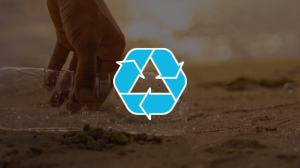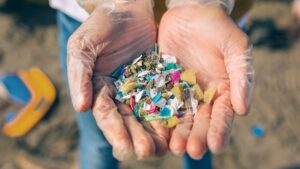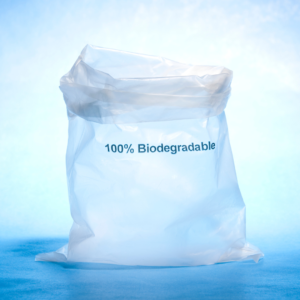Millions of plastic particles are being plucked from the water – by seagrass
Scientists have discovered that up to 867 million plastic items a year may be trapped by natural tangles of seagrass fibre known as ‘aegagropilae’ or ‘Neptune balls’.
When there’s a storm, these balls are washed up onto the shore, along with the plastics inside them, according to a study featured in Scientific Reports.
Eight million tonnes of plastic waste leaks into the world’s oceans each year, according to a widely cited 2015 study. A separate study by the World Economic Forum and the Ellen MacArthur Foundation also estimates that there will be more plastic than fish in the sea by 2050 if sufficient action is not taken.
In this case, nature itself has taken action. The ability of the seagrass balls to trap and eject these particles “represents a continuous purge of plastic debris out of the sea,” lead author Anna Sanchez-Vidal, a marine biologist at the University of Barcelona, told France 24.
Natural filter
The researchers studied a species of seagrass called Posidonia oceanica, which has long, ribbon-like leaves, and is found in coastal waters up to 40 metres deep around the Mediterranean.
In 2018 and 2019, they counted the number of plastic particles found in seagrass leaves and Neptune balls that had been washed up on various beaches in Mallorca, Spain. Half of the loose seagrass leaves contained plastic debris, with up to 613 plastic items per kilogramme of dead leaves.
Of the more tightly bundled Neptune balls, only 17% contained plastic – but they discovered up to 1,470 plastic items per kg of dead seagrass remains.
“Given the ever-increasing plastic load reaching our oceans, seagrass ecosystems such as P. oceanica meadows will play a crucial role,” especially in buffering and trapping plastic, the scientists say “This may be particularly important in the Mediterranean Sea, where this species is endemic, where high microplastics loadings have been found at surface waters and on the seafloor.”
Seagrass meadows are widespread in shallow coastal waters and are an important ecosystem, the scientists add. Their benefits include absorbing CO2, mitigating climate change, improving water quality and providing a nursery for many marine species.



